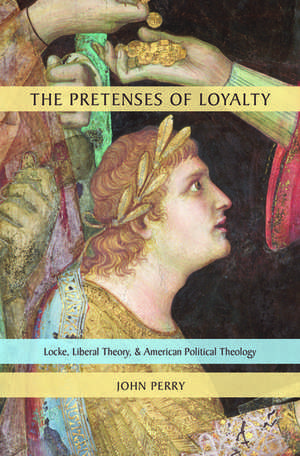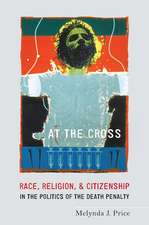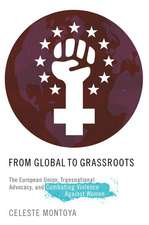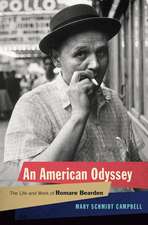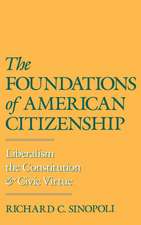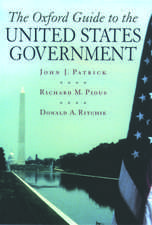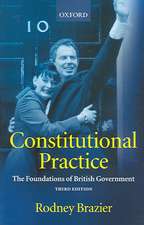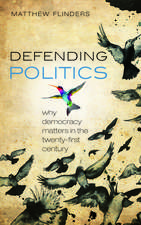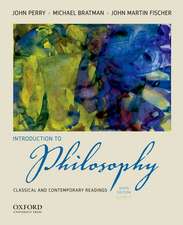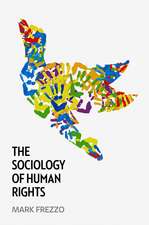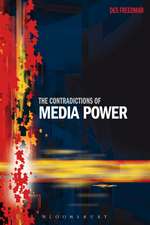The Pretenses of Loyalty: Locke, Liberal Theory, and American Political Theology
Autor John Perryen Limba Engleză Hardback – 28 iul 2011
Preț: 552.07 lei
Preț vechi: 704.32 lei
-22% Nou
Puncte Express: 828
Preț estimativ în valută:
105.65€ • 109.89$ • 87.22£
105.65€ • 109.89$ • 87.22£
Carte tipărită la comandă
Livrare economică 02-08 aprilie
Preluare comenzi: 021 569.72.76
Specificații
ISBN-13: 9780199756544
ISBN-10: 0199756546
Pagini: 288
Dimensiuni: 236 x 165 x 33 mm
Greutate: 0.54 kg
Editura: Oxford University Press
Colecția OUP USA
Locul publicării:New York, United States
ISBN-10: 0199756546
Pagini: 288
Dimensiuni: 236 x 165 x 33 mm
Greutate: 0.54 kg
Editura: Oxford University Press
Colecția OUP USA
Locul publicării:New York, United States
Recenzii
a perspicacious diagnosis of a most pressing problem. In short, it is a clear provocation that challenges many of the neat theopolitical categories we have come to assume, and as such, it discomfits and disabuses most excellently.
This elegant and tightly-reasoned tract offers a striking new reading of John Locke's theories of church and state, religion and politics, conscience and command. Though Locke is often seen solely as a secular prophet of modern liberalism, Perry shows that he is also a subtle political theologian who saw the need to harmonize our spiritual and temporal loyalties in public and private life. If Perry is right on Locke, our conventional constitutional histories and political theories will need ample revision, and Perry shows us the way.
John Perry's study offers a fresh and rigorous exploration of the Lockean inheritance of contemporary politics, focusing particularly on the US political experience
Have you ever wondered whether it's possible for a liberal democratic state to accommodate all the diverse loyalties of its citizens, especially all their diverse religious loyalties? If so, then this is the book for you. In a fresh reading of the entirety of John Locke's writings on toleration, Perry shows how Locke moved from an anti-toleration position to the view that almost all religious loyalties should be tolerated and can be tolerated if we establish 'just bounds' between religion and a government. Skillfully negotiating the vast literature on this topic, Perry argues that no liberal theorist has ever succeeded in formulating these just bounds, and that it's a mistake to think in terms of a boundary between a neutral state and the loyalties of the citizens. He concludes by asking, 'What then?' Altogether an illuminating, thoroughly informed, compelling and bracing argument.
This elegant and tightly-reasoned tract offers a striking new reading of John Locke's theories of church and state, religion and politics, conscience and command. Though Locke is often seen solely as a secular prophet of modern liberalism, Perry shows that he is also a subtle political theologian who saw the need to harmonize our spiritual and temporal loyalties in public and private life. If Perry is right on Locke, our conventional constitutional histories and political theories will need ample revision, and Perry shows us the way.
John Perry's study offers a fresh and rigorous exploration of the Lockean inheritance of contemporary politics, focusing particularly on the US political experience
Have you ever wondered whether it's possible for a liberal democratic state to accommodate all the diverse loyalties of its citizens, especially all their diverse religious loyalties? If so, then this is the book for you. In a fresh reading of the entirety of John Locke's writings on toleration, Perry shows how Locke moved from an anti-toleration position to the view that almost all religious loyalties should be tolerated and can be tolerated if we establish 'just bounds' between religion and a government. Skillfully negotiating the vast literature on this topic, Perry argues that no liberal theorist has ever succeeded in formulating these just bounds, and that it's a mistake to think in terms of a boundary between a neutral state and the loyalties of the citizens. He concludes by asking, 'What then?' Altogether an illuminating, thoroughly informed, compelling and bracing argument.
Notă biografică
McDonald Post-Doctoral Fellow for Christian Ethics and Public Life, Christ Church, Oxford
